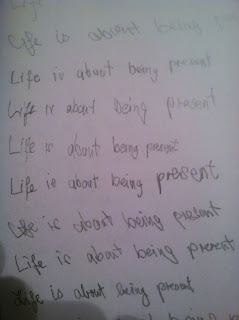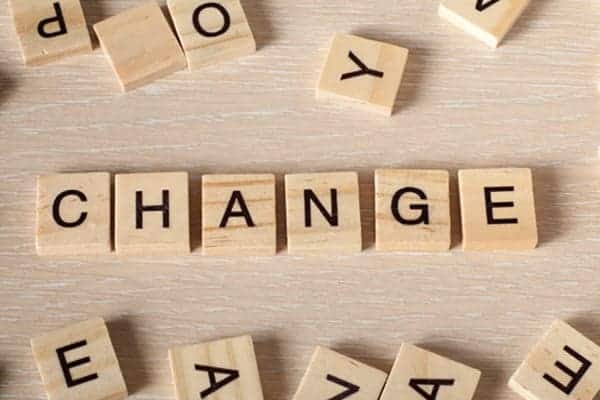In my first article, “Are you on automatic pilot?”, I wrote some versatile thoughts about automatisms.
Biologically seen, an automatism is one part of your behavior, like the underlying motor patterns you perform each day, each second, to achieve a certain goal. These automatisms behind your action are working underneath your conscious level, without the influence of volition. Take e.g. riding a bicycle. When you start to do this, it turns out that it is quite hard, i.e. you need all of your attention to learn how to do this. You learn how to balance your body, how to strike the pedal and keep the balance to move forward and how to change direction and not loosing balance. At one point these balancing acts became second nature and now you are able to ride a bicycle and simultaneously have a conversation, or ride your bicycle with just one hand and at the same time turn around to look over your shoulders. It took quite a while to learn this and so it also took some years to learn all the other things you perform each day. This is a good thing, so you do not need to focus on these things anymore and can focus on work, or preparing food focusing on a three-course- dish, or just doing daily things like doing the laundry, cleaning the dishes etc. All the activities I just named have also gone through a shorter or longer period of acquisition. Most of human activities are learned activities. First you acquire and then your perform. That is the natural order. Does this also apply to the fish?
Would you like to be a fish? The fish is born with a genetic program. It does not have to think and learn how something works, since it already does it, floating right where it needs to go, laying the eggs where it seems to belong to. It is perfectly adapted to his environment. But do not take the fish out of the water, because that would not be good. We humans, on the other hand, have a little more difficulty, and that’s not all that bad. We are forced to learn. Learning as a permanent change in the behavior of an organism based on experience. This definitely fits the definition of a psychologist. We manipulate certain variables from time to time and gradually something changes in our lives. That makes life very exciting.
Progress or improvement, and happiness as an outcome, comes about through a constant and gradual change of variables. This process I call learning.
I remember a test with 96 students. The students should go jogging each day before dinner. After about two months, it felt quite normal, it became an automatism, it became a habit. In this process, the students conditioned themselves, they learned. Do something specific for two months every day! Be careful, because it could become a habit. What is a habit? A habit is a pattern of behavior that automatically follows as an answer in a specific situation. Therefore, the strength of a habit increases as it consistently follows in a consistent context. Before you perform a habit perfectly and uncosciously it requires that go through some points. First you choose to learn something, then put it into action and thirdly, repeat it as often as you need to become professional in this activity you choose. Through unnumerous repetitions you create an automatism. Going through these four points seems that we are quite intelligent adaptable living beings. Here I would like to integrate a dialogue between Humberto R. Maturana and Bernhard Pörksen. In this dialogue, I found a very interesting definition or point of view on intelligence:
Maturana: Intelligence manifests itself in the ability to vary one’s behavior in a changing world. Whenever one classifies a living being as intelligent, one actually means that it transforms its behavior adequately. Since we are living beings with a complex language, we need and also possess such a gigantic plasticity of our behavior that we can justifiably say: The very fact that we exist in an coordinated field of behavioral coordination makes us all equally intelligent creatures. Of course, there are different experiences and preferences, interests and skills, that’s true. But I assert that every human being, if he wills, can learn what others could learn.
Poerksen: That sounds like everyone can turn into an Albert Einstein – an icon of towering intelligence.
Maturana: Not everyone turns into an Albert Einstein, but anyone can, if he wishes so, learn what Albert Einstein learned. Of course, he will not go the same way as Albert Einstein, he will not invent the same terms and theories, because this would require similar circumstances in life and identical experiences. A person who has chosen a way of life and a career path, limits himself in his other abilities. If I want to start a career as a bodybuilder, then I focus on special requirements – and others do not even emerge. But that does not mean that this bodybuilder who has decided for a certain existence lacks a fundamentally given intelligence.
Sit back and relax for a few minutes, think about what new things you do daily. Which variables are you working on? What do you think? I wrote these lines about 2012 in the USA. At that time I could only use my left hand. Out of necessity, I learned to write with left. It was laborious and awkward at the beginning, but if you give time to the whole, then ease and momentum can arise.


